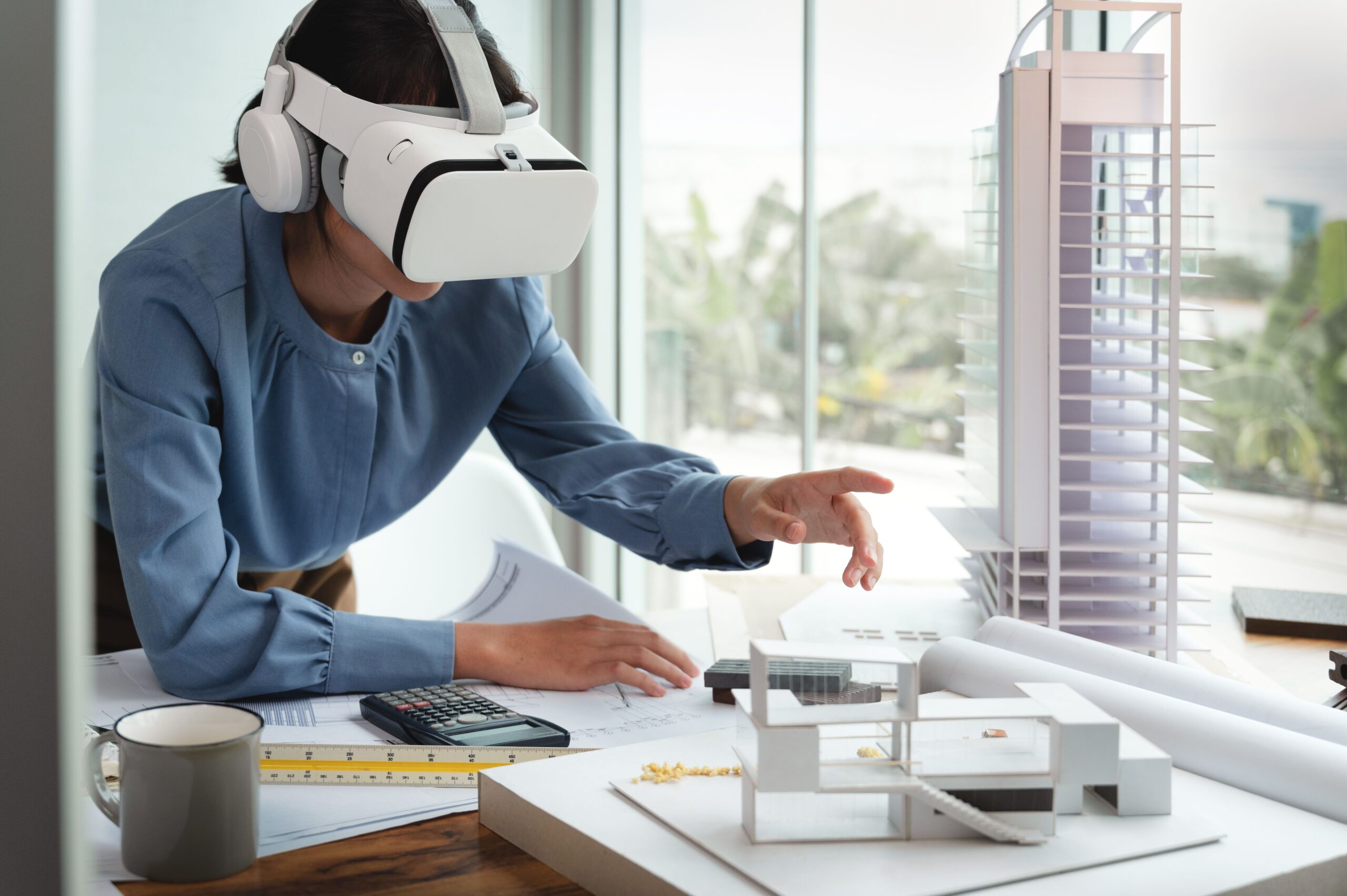As Digital Construction Week 2025 approaches, groundbreaking virtual reality innovations are transforming how Britain builds – here’s your exclusive preview of tomorrow’s construction technology.
The Evolution of VR in UK Construction
The journey of virtual reality in British construction has been nothing short of remarkable. Since Digital Construction Week’s inception in 2015, VR technology has evolved from basic 3D visualisations to sophisticated immersive environments that are revolutionising how we plan, build, and manage construction projects. The past decade has witnessed a 320% increase in VR adoption across UK construction sites, with the technology becoming an integral part of project delivery. Today’s construction professionals routinely use VR headsets that offer resolution qualities 10 times superior to their 2015 counterparts, enabling unprecedented levels of detail in virtual walkthroughs and site planning.
The transformation has been particularly evident in how VR interfaces with other digital tools. Modern VR systems seamlessly integrate with project management software, Building Information Modeling (BIM) platforms, and real-time site monitoring systems, creating a comprehensive digital ecosystem that enhances decision-making and project oversight. This integration has led to a 40% reduction in design-related errors and a 25% improvement in project delivery timelines across major UK construction projects.
Real-World Applications Transforming Sites Today
The Everton Stadium project by Laing O’Rourke stands as a testament to VR’s transformative potential in modern construction. The project team utilised advanced VR technology to create immersive pre-construction visualisations, enabling stakeholders to identify and resolve potential issues before breaking ground. This proactive approach resulted in £4.2 million in cost savings and a 30% reduction in on-site modifications.
- Virtual site inductions and safety training, reducing accident rates by 45%
- Remote expert consultations, cutting travel costs by 60%
- Real-time clash detection and resolution, saving an average of 3 weeks per project
- Immersive client presentations, improving project approval rates by 85%
Key VR Innovations Showcased at DCW 2025
Digital Construction Week 2025 will showcase groundbreaking VR innovations across its 11 stages, featuring demonstrations from industry leaders and technical specialists. The event will highlight how British construction firms are leveraging next-generation VR technology to enhance project delivery and team collaboration.
- Haptic feedback VR systems for enhanced training simulations
- AI-powered virtual project managers for real-time decision support
- Multi-user VR environments for remote team collaboration
- Photogrammetry-based site monitoring and progress tracking
- Mixed reality solutions for on-site overlay of digital information
Integration with BIM and Digital Twins
The convergence of VR technology with BIM and digital twins represents a quantum leap in construction project management. BIMcollab’s latest platform, set to debut at DCW 2025, demonstrates how VR interfaces can transform complex BIM data into intuitive, navigable environments. This integration enables project teams to identify conflicts, optimise workflows, and make informed decisions with unprecedented clarity and confidence. The system has shown to reduce coordination meetings by 40% while improving first-time-right delivery by 65%.
Impact on Project Delivery and Safety
Virtual reality’s influence on construction safety and project efficiency has been transformative. UK sites implementing VR-based safety training have reported a 75% reduction in incidents related to high-risk activities. The technology’s ability to simulate dangerous scenarios without real-world risks has revolutionised how teams prepare for challenging tasks.
- Virtual mock-ups reducing material waste by 30%
- Safety incident prevention improving by 45%
- Project timeline accuracy increasing by 80%
- Stakeholder communication effectiveness rising by 90%
Future Outlook and Implementation Strategies
For construction professionals looking to integrate VR technology into their operations, DCW 2025 will offer practical guidance on implementation strategies. The initial investment in VR infrastructure typically ranges from £15,000 to £50,000, with ROI achieved within 12-18 months through improved efficiency and reduced errors. Success factors include:
- Comprehensive staff training programmes
- Phased implementation approach
- Regular technology updates and maintenance
- Integration with existing digital systems
- Clear measurement of performance metrics
Conclusion: The Virtual Reality Revolution in Construction
As Digital Construction Week 2025 approaches, it’s clear that VR technology has moved beyond novelty to become an essential tool in modern construction. The event will showcase how British construction firms are leading the way in VR adoption, with innovations that promise to make projects safer, more efficient, and more profitable. For construction professionals looking to stay competitive in an increasingly digital industry, embracing VR technology is no longer optional – it’s imperative for future success. The demonstrations and insights shared at DCW 2025 will provide the roadmap for this transformation, helping to shape the future of construction in the UK and beyond.
Sources
[1] https://www.digitalconstructionweek.com
[2] https://highways.today/2025/05/03/digital-construction-week-2025/
[3] https://www.excel.london/whats-on/digital-construction-week-2025


Leave a Reply